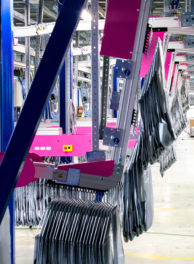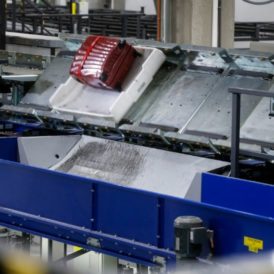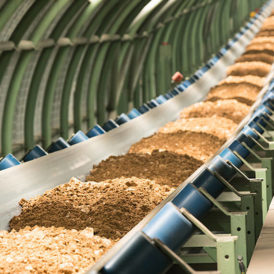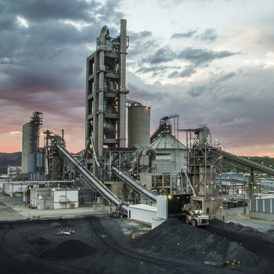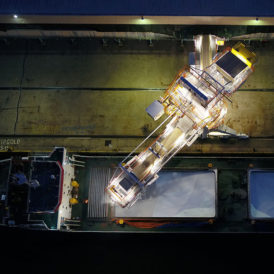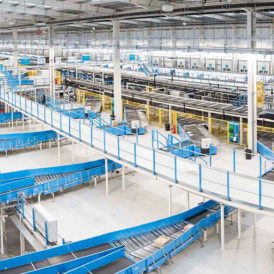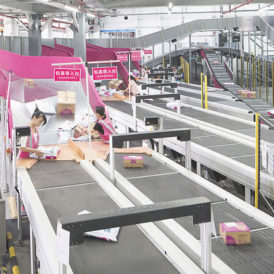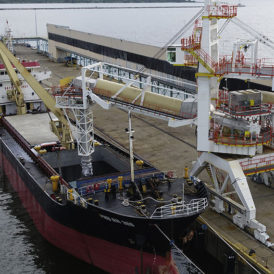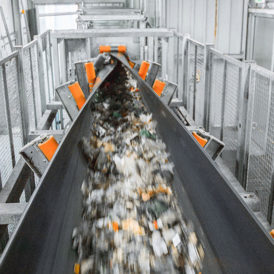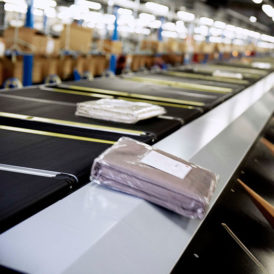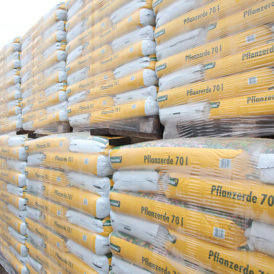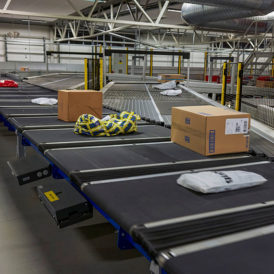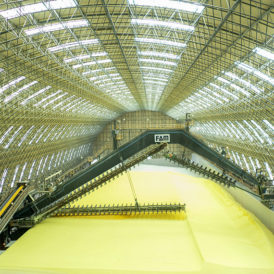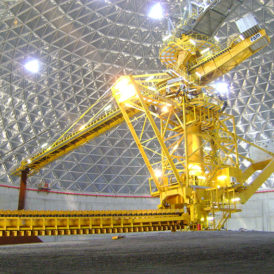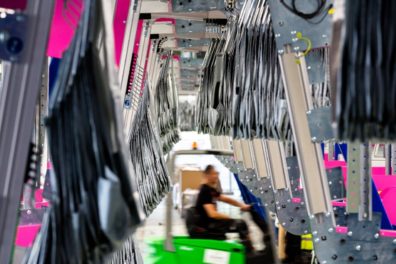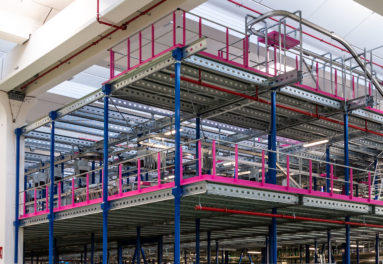- Increasing Direct to Consumer business required operations to be optimised
- The Tezenis brand needed an automated solution to maintain its high standards of customer service as e-commerce grows
- System design fits into existing infrastructure and allows for easy expansion
- 25% higher throughput than conventional pouch solutions
- Up to 7kg pouch capacity handles diverse fashion items
BEUMER Group, a leading global supplier of automated material handling systems, has put its pouch technology into operation with Italian Calzedonia Group, a major player in international fashion retail markets.
With the increase in e-commerce, Calzedonia Group has seen a steady rise in its Direct to Consumer (DTC) business and needed to optimise its despatch operations to account for this growth while increasing the level of efficiency and customer service. The site, originally designed for retail distribution only, had already been changed to an omnichannel warehouse. The challenge was to deal with the added pressures that rising e-commerce volumes place on an omnichannel system by adopting a flexible, automated system that would allow easy expansion of capacity.
The Group chose a system based on BEUMER Group’s BG Pouch System™ technology; a solution to be designed to fit into the current premises, expanding the existing warehouse’s fulfilment capacity and returns handling, without needing to extend the footprint of the physical warehouse. The BG Pouch System design allows an approx. 30% smaller footprint than conventional pouch technology systems and can be mounted in the ceiling, saving precious floor space. Additionally, the modular BG Pouch System design can also be scaled up quickly and easily as needed. Using the pouch technology, Calzedonia Group has transformed its warehouse, optimising it for omnichannel operations while continuing to achieve high efficiency in handling and fulfilment.
Consumer behaviour also varies between countries, placing huge pressure on an e-commerce or omnichannel organisation. The pouch system features are designed to remove most of this pressure, while the modular design allows capacity to be increased to match rising sales. This is one of the many future proof features of the system.
“Return rates vary across Europe. Coming from Italian levels of 10-15% and expanding to handle as much as 50% in return rates can really put a strain on an otherwise effective organisation,” says Salvador Oltra Gonzalez, General Manager, BEUMER Group Italy.
Box: About the BEUMER Group pouch system:
- 12 ergonomic loading stations
- 23 unloading stations
- 36,000 pouches
- 7 kg load capacity per pouch – ideally suited to fashion items from bigger to smaller one
- 10,000/h system throughput capacity per module
- Close to 30% smaller footprint than conventional pouch technology systems
Box: The pouch system process
- Items arrive at loading station in cartons from batch picking area
- Items are loaded individually into pouches
- Item and pouch are “married” with RFID for 100% tracking
- Pouch with item travels to a dynamic buffer for intermediate buffering
- Once an item is allocated to a specific order, the pouch is called for – the system
automatically calls the nearest item to save time.
- Called items in pouches are collected in a dynamic order buffer.
- Once all items for an order are collected into the dynamic buffer, they are released to the batch buffer.
- Once the batch buffer is filled, the matrix sortation begins.
- Orders are sorted and dispatched for packing at the unloading stations.
- At the unloading stations, shipping labels are printed, and paper bags are filled for each
end-customer’s order.
- Packed and labelled bags are conveyed for shipping.
Box: Technology deep dive
The modern version of the system offers new benefits over the more conventional pouch systems, cutting down operational costs and giving a higher degree of sustainability:
- Magnetic drives give a friction free accumulation flow which counts for almost 80% of an
average pouch system
- 80-degree inclines and declines help free up floor space
- Designed without pneumatics, and with off the shelf components
- The system is less costly by use of off the shelf components, which reduces the need for
maintenance
- A lower number of drives delivers better energy efficiency.
